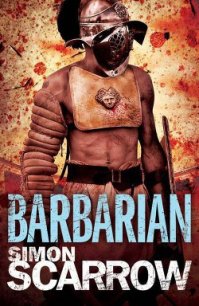Young bloods - Scarrow Simon (библиотека электронных книг txt) 📗
'I have to go. I have work to do. I bid you good night, Alexander.'
His friend stared back at him for a moment before he stood and shook his hand. 'Good night, Buona Parte.'
The other officers fell silent as he strode through the mess towards the door. Napoleon felt their gaze fix on him like needles and had to resist the urge to walk even faster.Then he was out of the room, and descending the steps into the hall of the building, then out into the cool evening air. Behind him the sound of voices in the mess slowly rose to its former level as he made his way back to his room at the house of Mademoiselle Bou, who had inherited her late husband's home.
Much of Napoleon's spare time was spent reading. Histories were his favourite passion, but more recently he had become interested in political theory and philosophy. Rousseau's works appeared on his shelves alongside the works of Pliny, Tacitus and Herodotus. There was even room for some books on English history, and Napoleon was fascinated by the way in which the English parliament had secured its ascendancy over the throne. If it could be done in an intellectually backward nation like England, then why not France? When Napoleon was not reading he penned essays on artillery tactics, ripostes to Plato and, once he had discovered a copy of Boswell's history of Corsica, he began to plan his own history of the island.
He wrote quickly, in his spidery scrawl, well into the night by the light of a single candle, which was all he could afford. Occasionally he was disturbed by the raucous cries of the drinkers at the Cafe Corde next door, and felt pangs of anger and despair whenever he recognised the voices of the other young officers of the regiment.
Chapter 37
The months passed with a slowness that Napoleon found unbearable and he went about his monotonous duties with a growing sense of frustration, until the morning he was woken by a pounding on his door. He sat up, blinking the sleep away as he struggled to clear his mind. It was still dark outside the window. 'What the hell's going on?'
'Lieutenant Buona Parte?' a voice called from the other side of the door.
'Come in!'
The door opened to reveal one of the gunners from his company. The man bowed his head apologetically.
'What do you want?' Napoleon yawned.
'Urgent message, sir.'
'What is it?'
'The colonel wants all the officers of our battalion at headquarters as soon as possible, sir.'
Napoleon swung his legs over the side of the bed and reached for his clothes. 'Tell him I'm on my way.'
Out in the street the dark figures of men in uniform hurried through the dim pre-dawn light, making for the regiment's headquarters. Napoleon wondered if this was some elaborate exercise to see how quickly the regiment could be made ready to march. As he reached the barracks and walked quickly through the gates he saw, by the light of dozens of torches mounted on wall brackets, that the men of his battalion were already gathering their marching kit and forming up in their companies on the parade ground. Lights glowed in the windows of the headquarters building and he quickened his pace as he approached the steps leading up to the entrance. Inside the mess, the other officers were sitting or standing around the room. Spotting Alexander leaning against a wall, Napoleon threaded his way through the crowd towards him.
'What's happening?'
Alexander shrugged. 'No idea. Just got the summons to headquarters. '
'Where's the colonel?'
'Haven't seen him. I just hope this is a drill. There's a certain bed I want to get back to before someone else slips into my place.'
A commotion at one end of the room drew their attention and a sergeant major stepped into the room and bellowed, 'Commanding officer present!'
The rumble and scrape of chairs died away as the colonel stepped through the door and strode briskly to the end of the room, where he turned to face his officers. He cleared his throat and began the briefing.
'The battalion is moving out at once. Serious rioting broke out three days ago in Lyons. It seems that it began in the silk workers' district over a pay dispute. They burned the factory, then moved on and broke into a wine warehouse. Before the local authorities could take control of the situation the rioting had spread right across the city.There seems to be a hard core of radicals who claim to be in charge of the mob.They have occupied the town hall and have started to issue proclamations calling for a more general rising of the poor in the surrounding countryside. So the mayor has called in the army.The 34th regiment of infantry is already on its way from St-Etienne. We're to join them in a supporting role. We won't need the cannon. Just the sight of our uniforms and a few muskets should bring those troublemakers to their senses.Any questions?'
Napoleon glanced round at the other officers before he raised his hand.
'Yes, Lieutenant?'
'Sir, if these people don't come to their senses, or if we are attacked, what force are we permitted to use? What are the rules, if engaged?'
The colonel nodded. 'Good question. If you find yourselves in a situation that endangers your troops you have permission to use the bayonet. If that fails you may fire live rounds. Obviously, you must be the judge of the appropriate level of response. You can knock a few heads together if they hurl abuse, but if they hurl anything else they're fair game.' He turned his gaze away from Napoleon and surveyed his officers briefly. 'Gentlemen, there seems to be a tide of dissent rising up across France. The servile classes have been kept in check for many centuries. We cannot afford to let the situation in Lyons set a precedent.When order is restored I want people across the land to be aware of the swift and thorough manner that such disturbances are dealt with. Do I make myself clear?'
The battalion left Valence as dawn was breaking. Captain Des Mazis came out of headquarters to bid his brother farewell, and to exact a promise from Napoleon to look after him. Then the column marched from the barracks in silence, since the colonel did not want to risk attracting attention to their departure. If word of the purpose of their mission leaked out on to the streets ofValence, it was possible that there were enough radical hotheads in the city to follow the example of the rioters in Lyons.
It took three days to march up the Rhone valley to Lyons, and as they approached the line of the city walls the men of the Regiment de la Fere could see thin trails of smoky haze drifting up from several locations inside the city.They were met at the city gate by a captain of the 34th, who looked tired and was pleased to see the reinforcements as he presented himself to the colonel.
'Sir, your men are to deploy immediately. My regiment is clearing the streets on the other side of the Saone, but there's been trouble on this bank.There's a mob sacking the merchant district. The mayor wants you to deal with it.'
'Very well,' the colonel acknowledged. 'My compliments to the mayor. Tell him we'll move against the mob immediately.'
The captain saluted and turned away to hurry back to his regiment.The colonel called his officers forward to give his orders as the rest of the men set down their packs and prepared for action, carefully loading their muskets. There was no time for a detailed plan and the colonel simply told his officers to go in hard against any of the townspeople who dared to oppose them.
With bayonets fixed, the men of the La Fere regiment marched into the town. The street ahead of them was almost deserted. Only a few individuals dared to venture out of their homes, and they scuttled back inside at the sound of the nailed boots tramping down the cobbled streets. Napoleon glimpsed faces at windows snatching glances at the soldiers as the column passed by. As they reached the wealthier neighbourhood down by the river, the houses became grander and more impressive, and from some distance ahead came the sound of many people shouting in anger. Napoleon instinctively reached for the handle of his sword and was aware that his throat had gone quite dry.




